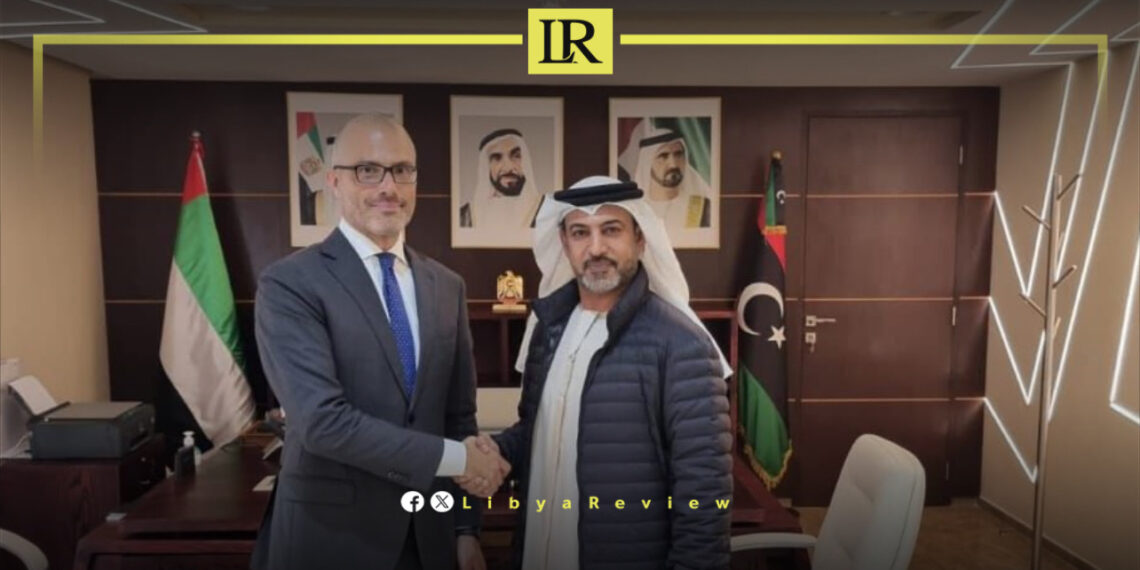On Friday, the UAE Ambassador to Libya, Mohamed Al Shamsi, held a meeting with the European Union Ambassador to Libya Nicola Orlando in the Tunisian capital, Tunis.
According to a statement from the UAE embassy in Libya, the discussions centred around the latest developments in the Libyan political process.
The statement further added that the two parties reviewed the international and regional efforts aimed at resolving the political crisis in Libya. Both diplomats underscored the importance of coordination and cooperation to achieve stability and prosperity in the war-torn North African nation.
The meeting comes at a critical juncture, as Libya continues to grapple with a protracted political impasse and sporadic violence. The country has been divided between rival governments and armed factions since the overthrow of long-time leader Muammar Gaddafi in 2011.
As the Libyan crisis continues to evolve, the meeting between the Emirati and EU diplomats highlights the importance of coordinated international efforts to address the country’s complex challenges and chart a path towards stability and development.
Earlier this month, Al Shamsi met with acting US Chargé d’Affaires to Libya Jeremy Brent to discuss the ongoing political developments in Libya, emphasising their continued support for United Nations-led mediation efforts.
In a statement released by the US Embassy, Brent highlighted the significance of the collaboration between the United States and the United Arab Emirates in supporting the complex political process in Libya. “It’s always a pleasure to meet with Ambassador Al Shamsi and reinforce our shared commitment to supporting the UN’s efforts in Libya,” said Brent.
The discussions centered around enhancing the robust support both nations provide to the ongoing political framework in Libya, particularly in light of recent challenges such as the resignation of UN Special Envoy Abdoulaye Bathily. Both diplomats reaffirmed their countries’ dedication to aiding Libya in overcoming the current political deadlock that has hindered the country’s path to stabilization and unity.


